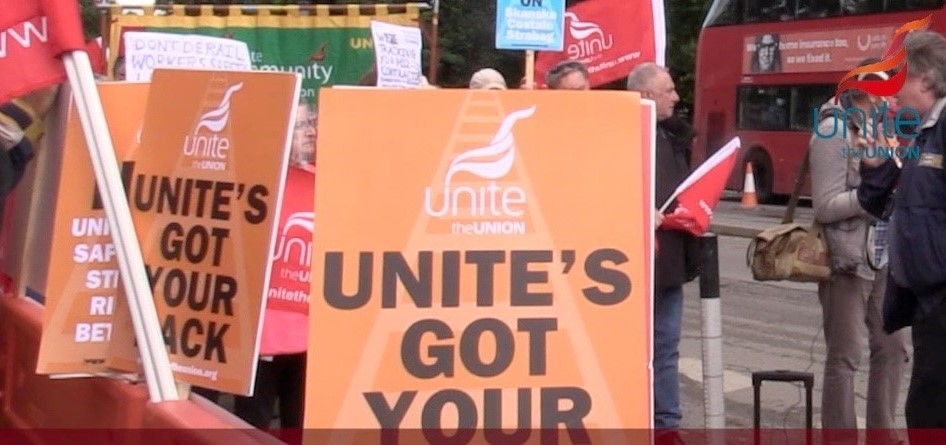‘Out of control’
The number of people considered self-employed has risen to a record-breaking high, now comprising 15 per cent of the entire workforce.
But don’t think for a second that this army of self-employed are happily earning their living being their own bosses. Tax loopholes and lack of clarity in the law allow employers to take advantage by misclassifying those who work from them as self-employed, in the process robbing workers of key employment rights and protections, while depriving the exchequer of billions in lost tax revenues each year.
Bogus self-employment is most rife in construction, an industry that’s plagued by health and safety issues, low productivity and a growing workforce retention problem.
Shocking new figures uncovered by Unite this week (July 31) in a freedom of information request show that the problem of false self-employment is only getting worse.
Shady practice
Unite found that in 2016/17, over a million construction workers were paid via the Construction Industry Scheme (CIS), the standalone tax system for construction under which workers — despite the vast majority of them having employment characteristics of a full-time employee — are normally classified as self-employed.
This is up a massive 8 per cent from last year, when 992,973 were paid under the Scheme. Now, it’s been estimated that nearly half of all construction workers are paid under the CIS, mostly bogusly self-employed.
It’s a shady practice but employers have every reason to maintain this system – misclassifying their workers as self-employed means they don’t have to pay 13.5 per cent in employers’ national insurance contributions, and they likewise don’t pay holiday or sick pay.
Taxpayers lose out too – bogus self-employment costs the Treasury in excess of £2.5bn each year.
Unite assistant general secretary Gail Cartmail said that the latest figures “demonstrate that bogus self-employment in construction is out of control.
“Employers are simply ignoring the rules in order to line their pockets and deny workers their rights,” she said.
And even when the government has tried to clamp down on bogus self-employment, as it did in 2014, the construction industry – bent on cutting costs – found yet another way to shirk paying tax and in so doing strip construction workers of decent wages, rights and protections.
Employment agencies started using complex – and usually legal – payment structures through what are known as umbrella companies. Agencies, no longer able to misclassify the workers they recruit as self-employed after reforms in 2014, instead paid their workers through these umbrella companies.
Technically employed by the umbrella company, workers are forced to pay both employers’ and their own national insurance contributions, and other fees deducted by the company for processing their pay.
Under this payment structure, construction workers lose out on, in some cases, thousands of pounds a year.
Now, it’s been conservatively estimated that nearly half a million construction workers are paid by umbrella companies, which flourished after 2014 self-employment reforms.
The much-anticipated Taylor Review published last month, which many had hoped would tackle bogus self-employment plaguing the construction industry and clamp down on umbrella companies, briefly identified the problem but offered no solution.
“We have huge numbers of construction workers being routinely exploited via the government’s own tax scheme and via umbrella companies and yet the Taylor Review has ducked these issues,” Cartmail argued.
“Taylor talks about his seven principles for fair and decent work which includes workplace training and the health and wellbeing of workers but while the real employer can continue to divest themselves of their workforce and have no responsibility for them, his principles are nothing but warm words,” she added.
Reform
Warm words for workers from the Conservative government are nothing new. Under Theresa May and her predecessor, pledges on workers’ rights have all been watered down as the government defends business interests, even as it pretends to stand up for workers.
Underpinning its inaction on exploitative work arrangements is an absurd argument the government uses time and again — that workers actually want the so-called flexibility offered by agencies and self-employment.
But a new survey by the Joint Industry Board (JIB), that sets the standards for employment, welfare, and apprentice training in the electrical contracting industry, revealed that 84 per cent of electricians want to be directly employed, rather than employed via an agency in order to receive full employment rights, paid holidays and benefits.
Cartmail noted that this survey “destroys the myth that construction workers want the flexibility to operate via agencies or be self-employed.
“What workers want is to do know they are going to receive a steady wage and have the security of regular employment.”
She went on to say that big changes in the law are needed to make a difference for construction workers struggling on slumping wages and declining rights.
“The only way that workers will be treated fairly and decently is by introducing clear rules which ensure that workers are either genuinely self-employed or paid by a standard PAYE method,” she said. “Without such a reform, productivity in construction will remain low, accidents and ill health will be high and the industry will fail to train sufficient numbers of apprentices.”
Such reform has been put forward by the Labour Party, which has pledged to ban umbrella companies and implement stringent laws on employment status, supported by a strong enforcement regime. Find out more here.
And as Unite campaigns for such reforms, the union is tackling bogus self-employment now with its new Strategic Case Unit. Find out more here.
 Like
Like Follow
Follow

